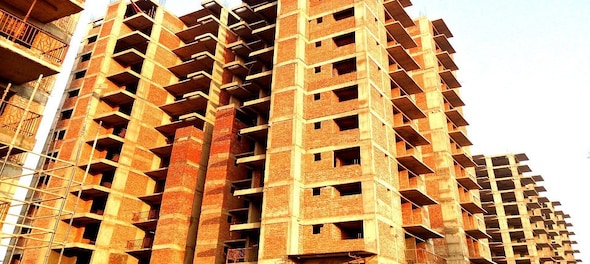
The Narendra Modi government on Wednesday announced a Rs 25,000-crore exclusive window for stalled real estate projects. It was a much-needed bailout fund as this will help in reviving the ailing sector and generating employment.
Union finance minister Nirmala Sitharaman said the government will put in Rs 10,000 crore in the Alternative Investment Fund (AIF) and the remaining amount will be provided jointly by State Bank of India (SBI) and Life Insurance Corporation (LIC).
What is the significance of this move?
The government's affirmation to the first AIF under the special window comes at a time when the country's real estate sector is struggling against low demand and hundreds of delayed projects. Hence, the decision has been encouraged by the ailing real estate sector, which has been hassling with projects due to an acute crunch in liquidity.
Experts state that approval of the fresh emergency fund for the real estate sector is "critically important" as it will not only help real estate developers but scores of homebuyers who are awaiting completion of their homes.
Anuj Puri, the chairman of ANAROCK Property Consultants said, "This is a critically important move which eliminates the ambiguity which surrounded the timelines for setting up the fund, and its actual implementation. Finally, countless aggrieved home buyers will see the light at the end of the tunnel."
He added that the move "could not have come at a better time" as a delay in setting up of the stressed fund for the sector was causing serious apprehensions.
"The delay in the on-ground deployment of the stressed fund gave rise to severe apprehensions about the main issues - of stuck and delayed projects - that had remained unaddressed so far. The timeline for setting up this fund and its actual implementation is quite critical," Puri said.
Puri further said several projects, stalled due to bankruptcy proceedings against the builders, will also be eligible to receive funds, provided they are not referred for liquidation already.
Why the builders are in pitfall?
A report revealed by Fitch Rating's India division says that the real estate sector would be required to repay loans worth $10 billion or over Rs 71,000 crore in the first half of 2020. It said default in repayment could affect mainstream banks as well.
Over the past year bankruptcy among real estate developers has doubled, adding to the woes of NBFCs which is another interesting fact that doubles up as evidence pointing at a real estate crisis. Experts believe that the real estate crisis, if not addressed in time, could have a crushing effect on NBFCs and banks.
Data from the Insolvency and Bankruptcy Board of India shows that a large number of realtors are under the insolvency resolution process, indicating that most of these builders may miss the deadline for crucial repayment of dues.
Meanwhile, another report by real estate research and analytics firm PropTiger said homes sales declined by almost 11 percent in the first half of 2019-20, indicating that there has been no improvement in the real estate business.
This is largely due to a 47 percent year-on-year (Y-o-Y) slump in new projects launched, triggered by a severe lack of liquidity among builders.
What is the big picture?
Although the government has hit the dead centre by setting up the stressed fund, it needs to introduce more reforms in taxation for the revival of the ailing sector.
Speaking to business news channel CNBC-TV18, SBI chairman Rajnish Kumar said recently that the sector needs urgent help. He said there is a need to increase affordability to boost demand in the real estate market.
Kumar explained that the taxation structure for the real estate industry is not ideal and it could perform better if taxation is streamlined. Real estate developers have to pay various forms of taxes including stamp duty and GST.
Homebuyers should note that stamp duty is the one-time charge paid under Section 3 of the Indian Stamp Duty Act. Stamp duty charges on property registration in the country are significantly higher in comparison to other economies in the world.
Kumar said some relief in taxation for the sector will lead to increased affordability - something that is necessary as India continues to resolve an internal demand slowdown.
Since the poor outlook of India's real estate is a result of many overlapping factors, experts said the government now has to focus on factors like high taxation, which has crippled builders all over the nation.
First Published: Nov 7, 2019 4:14 PM IST
Check out our in-depth Market Coverage, Business News & get real-time Stock Market Updates on CNBC-TV18. Also, Watch our channels CNBC-TV18, CNBC Awaaz and CNBC Bajar Live on-the-go!


Colour-coordinated theme-based polling booths set up in Srinagar
May 10, 2024 9:26 AM
Haryana: 16 women among 223 candidates in fray for 10 Lok Sabha seats
May 10, 2024 9:04 AM

